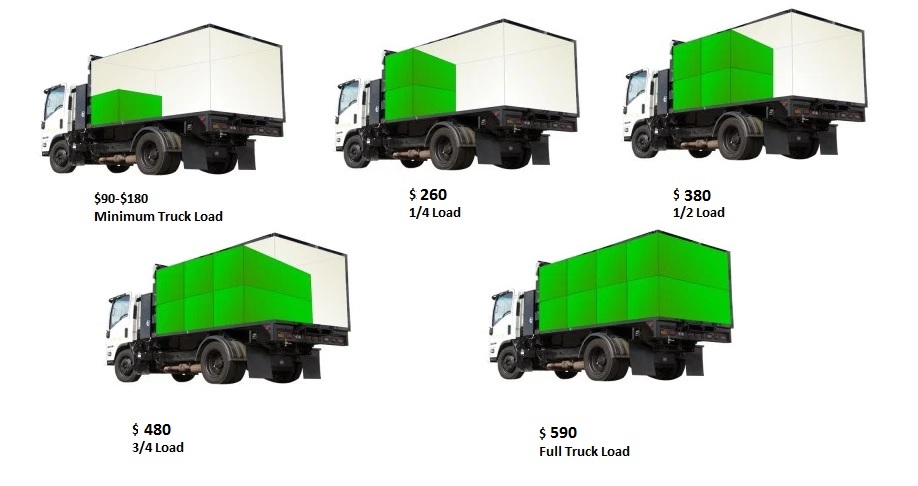As you contemplate the evolution of dumpster rental, think about how each age has contributed to shaping the waste monitoring landscape we browse today. From humble beginnings in the 1930s to the innovative modern technologies of the here and now, the journey of dumpster service has been marked by technology and adjustment. However what rests on the perspective for this essential service? The future fads in lasting practices hold the trick to unlocking a much more effective and eco-conscious strategy to waste administration. Keep tuned to uncover exactly how the dumpster leasing sector is poised to accept a greener tomorrow.
Historical Roots of Dumpster Rental
Discover the beginnings of dumpster rental and exactly how it has formed waste management practices in time.
Dumpster rental traces back to the 1930s when George Roby Dempster, a Tennessee entrepreneur, invented the Dempster-Dumpster. This critical development reinvented waste disposal by offering a marked container for accumulating and transporting garbage successfully. Initially used for construction websites, the concept swiftly increased to property and business settings, resulting in the establishment of the initial dumpster rental solutions in the 1960s.
Over the years, dumpster rental has substantially influenced waste management techniques by promoting benefit, sustainability, and company. The ability to centralize waste in committed containers improves collection procedures, lowers littering, and boosts recycling efforts. Furthermore, dumpster rental urges individuals and services to embrace accountable waste disposal habits, contributing to cleaner environments and minimized environmental influence.
Modern Innovations in Waste Administration
Integrating advanced technologies and sustainable methods has actually reinvented waste management in recent times, enhancing performance and environmental impact. One substantial innovation is the use of clever waste management systems that use sensors to keep track of waste degrees in real-time, optimizing collection courses and schedules. find more help reduce unnecessary pick-ups, reducing fuel intake and emissions.
Another modern-day advancement is the implementation of waste-to-energy centers, where non-recyclable waste is exchanged power with processes like incineration or anaerobic digestion. This not only reduces the volume of waste predestined for land fills yet likewise generates renewable energy.
Furthermore, the introduction of single-stream recycling has actually streamlined the reusing procedure for customers, causing higher participation rates and increased diversion from landfills. In https://commercialfloorcleanersse33321.blue-blogs.com/36012336/simplifying-your-atmosphere-discover-the-benefits-of-specialist-junk-removal-solutions , innovations in composting modern technologies have made natural waste monitoring more efficient, turning food scraps and yard waste right into useful garden compost for agricultural usage.
Anticipated Trends in Sustainable Practices
Lasting waste administration practices are progressing quickly to satisfy the raising demands for environmental duty and source performance. As you want to the future, a number of key fads are anticipated to shape the industry. One significant focus will certainly get on lowering waste generation with much better product style and packaging. Companies will progressively take on circular economic situation principles, intending to decrease waste and maximize the life-span of products.
Another trend to expect is the rise of sophisticated recycling technologies. Technologies in chemical recycling and pyrolysis are anticipated to provide new options for taking care of complex or infected waste streams that conventional recycling techniques struggle to refine effectively. These modern technologies have the possible to reinvent how we manage waste, transforming difficult-to-recycle materials right into important resources.
Furthermore, anticipate to see a higher focus on organic waste diversion. Composting programs and anaerobic food digestion facilities will certainly come to be extra extensive as areas make every effort to decrease the quantity of organic matter sent to landfills. By buying these sustainable techniques, we can move in the direction of a more circular and resource-efficient waste monitoring system.
Verdict
Finally, dumpster rental has actually come a long way considering that its creation in the 1930s. From its modest starts on building sites to its widespread usage in domestic and business settings, the industry has continuously developed to satisfy the altering demands of waste administration.
With the introduction of modern-day advancements and a concentrate on lasting methods, the future of dumpster leasing looks appealing, with a strong focus on efficiency, ecological duty, and technology.
